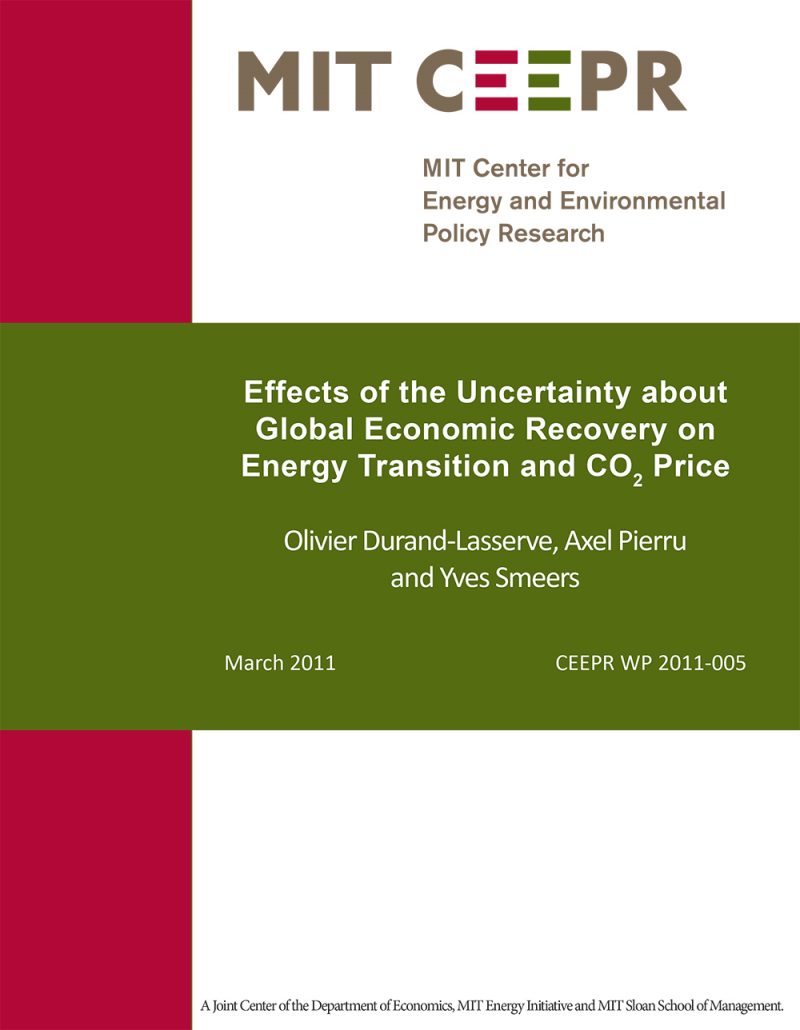Effects of the Uncertainty about Global Economic Recovery on Energy Transition and CO2 Price
Olivier Durand-Lasserve, Axel Pierru and Yves Smeers
March 2011
This paper examines the impact that uncertainty over economic growth may have on global energy transition and CO2 prices. We use a general-equilibrium model derived from MERGE, and define several stochastic scenarios for economic growth. Each scenario is characterized by the likelihood of a rapid global economic recovery. More precisely, during each decade, global economy may – with a given probability – shift from the EIA’s (2010) low-economic-growth path to the EIA’s (2010) high-economic-growth path. The climate policy considered corresponds in the medium term to the commitments announced after the Copenhagen conference, and in the long term to a reduction of 25% in global energy-related CO2 emissions (with respect to 2005). For the prices of CO2 and electricity, as well as for the implementation of CCS, the branches of the resulting stochastic trajectories appear to be heavily influenced by agents’ initial expectations of future economic growth and by the economic growth actually realized. Thus, in 2040, the global price of CO2 may range from $21 (when an initially-anticipated economic recovery never occurs) to $128 (in case of non-anticipated rapid economic recovery). In addition, we show that within each region, the model internalizes the constraints limiting the expansion of each power-generation technology through the price paid by the power utility for the acquisition of new production capacity. As a result, in China, the curves of endogenous investment costs for onshore and offshore wind are all bubble-shaped centered on 2025, a date which corresponds to the establishment of a global CO2 cap-and-trade market in the model.



